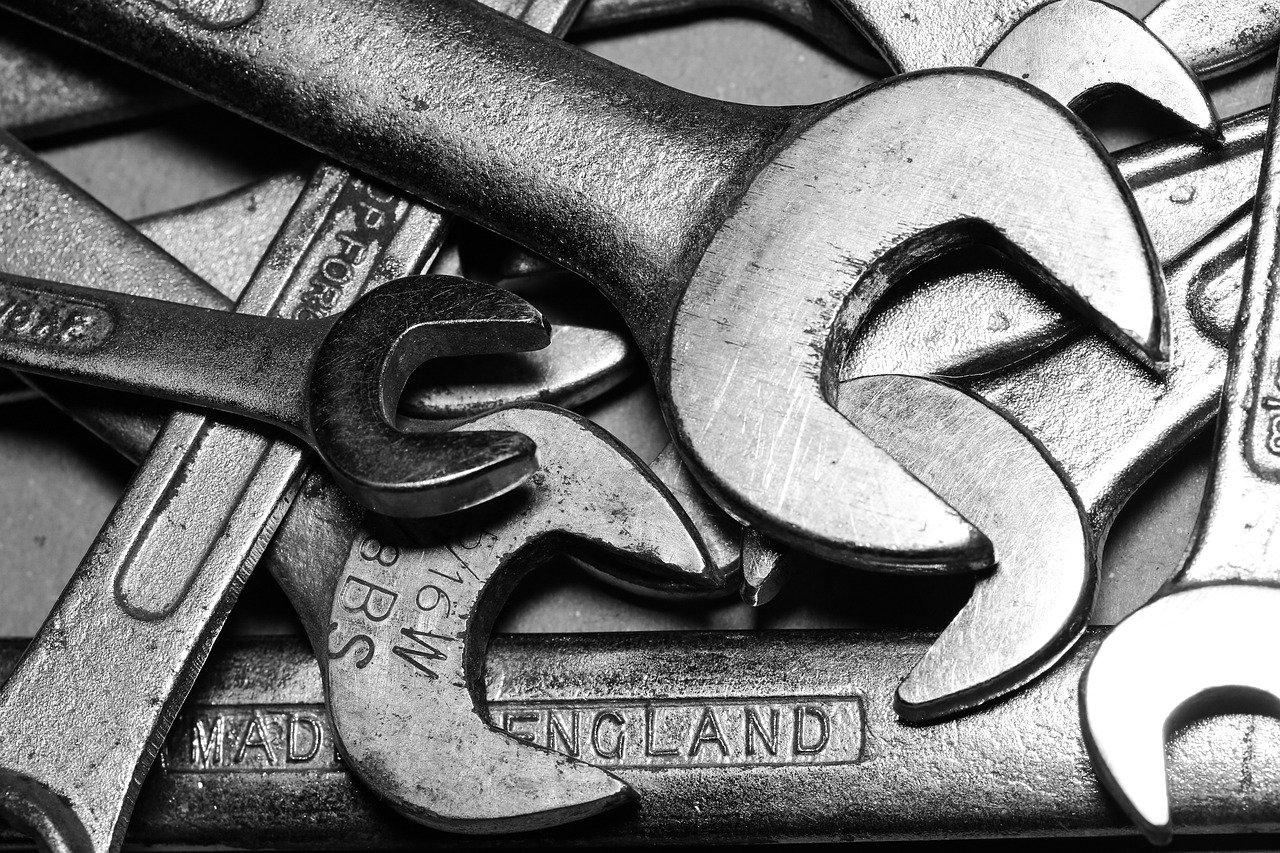The Honda Accord has long been celebrated for its reliability and longevity. This article delves into the factors that contribute to the lifespan of Honda Accord vehicles, providing insights from automotive experts and real-world experiences. By understanding these elements, potential buyers and current owners can make informed decisions about maintenance and care to maximize the lifespan of their vehicles.
Typically, a Honda Accord can last well over 200,000 miles with proper maintenance. Many owners report their vehicles exceeding this milestone, showcasing the Accord’s reputation for durability. Regular servicing plays a crucial role in achieving this average lifespan.
Several key factors influence how long a Honda Accord can last:
- Driving Habits: Smooth driving can enhance engine longevity.
- Maintenance Routines: Adhering to a maintenance schedule is essential.
- Environmental Conditions: Weather and road conditions can impact performance.
Aggressive driving, characterized by rapid acceleration and harsh braking, can significantly reduce the lifespan of any vehicle, including the Honda Accord. In contrast, adopting a more gentle driving style can lead to less wear on the engine and transmission, extending the vehicle’s life.
Regular maintenance is paramount for ensuring that a Honda Accord reaches its maximum mileage potential. Key maintenance tasks include:
- Oil Changes: Essential for engine health.
- Tire Rotations: Important for even tire wear.
- Brake Inspections: Crucial for safety and performance.
Neglecting these tasks can lead to premature wear and tear, drastically shortening the vehicle’s lifespan.
Environmental factors can greatly affect the durability of a Honda Accord. For instance, vehicles exposed to extreme temperatures or harsh road conditions may experience accelerated corrosion and mechanical issues. Regular checks and protective measures can mitigate these impacts.
Driving conditions significantly influence the mileage a Honda Accord achieves. Generally, city driving results in lower mileage compared to highway driving, which can lead to a longer vehicle life. Highway driving allows for consistent speeds and less strain on the engine.
Every vehicle has its common problems, and the Honda Accord is no exception. Common issues include:
- Engine Problems: Some models may experience specific engine troubles over time.
- Electrical Issues: Regular checks can help identify and resolve these problems early on.
Being proactive about these issues can help owners extend their car’s lifespan.
Owner testimonials provide valuable insights into the real-world longevity of Honda Accords. Many owners celebrate reaching significant mileage milestones, such as 100,000 and 200,000 miles, showcasing the vehicle’s durability and reliability.
When compared to other brands, Honda Accords often rank high in reliability and longevity. Their reputation for lasting performance makes them a popular choice among consumers seeking a dependable vehicle.

What Is the Average Lifespan of a Honda Accord?
When considering a vehicle purchase, understanding its longevity is crucial. The Honda Accord, a staple in the midsize sedan market, is renowned for its durability and reliability. Many potential buyers often wonder, Generally, with proper care and maintenance, these vehicles can surpass 200,000 miles, making them a smart investment.
A variety of factors contribute to the lifespan of a Honda Accord. Regular maintenance, such as timely oil changes and scheduled inspections, plays a significant role in ensuring the vehicle remains in optimal condition. Moreover, the quality of driving habits can either extend or shorten the life of the car. For instance, smooth driving with gradual acceleration and braking is known to reduce wear and tear on the engine and transmission.
Several key elements affect how long a Honda Accord can last:
- Driving Habits: Aggressive driving can lead to quicker deterioration. Gentle driving can help maintain engine health.
- Maintenance Routines: Adhering to a strict maintenance schedule is essential. Neglecting minor issues can lead to major repairs.
- Environmental Conditions: Extreme weather and road conditions can impact performance. For example, driving in harsh climates can accelerate wear.
The conditions under which a Honda Accord is driven can significantly affect its mileage and lifespan. City driving often results in lower fuel efficiency and increased strain on the engine compared to highway driving, which typically allows for smoother operation and better fuel economy.
Every vehicle has its quirks, and the Honda Accord is no exception. Owners should be aware of common issues that may arise:
- Engine Problems: Some models may face engine-related issues as they age. Early detection can prevent costly repairs.
- Electrical Issues: Electrical components may malfunction, affecting overall performance. Regular checks can help mitigate these problems.
Many Honda Accord owners report impressive mileage achievements. Numerous testimonials highlight that with diligent care, vehicles often exceed 200,000 miles. This remarkable longevity not only showcases the vehicle’s reliability but also reinforces its reputation as a wise choice for long-term ownership.
When compared to other brands, Honda Accords frequently rank high in terms of reliability and lifespan. Many consumers searching for a durable vehicle often find that the Accord stands out among its competitors, making it a favored option for those prioritizing longevity.
In conclusion, understanding the average lifespan of a Honda Accord is vital for potential buyers. With proper maintenance and mindful driving habits, these vehicles can provide exceptional value and longevity, often exceeding the 200,000-mile mark. Thus, investing in a Honda Accord can lead to years of dependable service on the road.

What Factors Affect the Longevity of a Honda Accord?
The longevity of a Honda Accord is a topic of great interest for both current and prospective owners. Understanding the factors that influence how long these vehicles can last is essential for making informed decisions about maintenance and driving practices. In this section, we will explore the various elements that can significantly affect the lifespan of a Honda Accord.
Several key factors contribute to the overall lifespan of a Honda Accord. These include:
- Driving Habits: The way you drive plays a crucial role in determining how long your vehicle will last. Aggressive driving—characterized by rapid acceleration, hard braking, and high-speed driving—can lead to increased wear and tear on the engine and transmission. Conversely, adopting a smoother driving style can enhance the longevity of your Accord.
- Maintenance Routines: Regular maintenance is vital for ensuring that your Honda Accord operates at its best. Routine tasks such as oil changes, tire rotations, and brake inspections can prevent minor issues from escalating into major problems. Neglecting these maintenance tasks can result in premature wear, significantly shortening the vehicle’s lifespan.
- Environmental Conditions: The environment in which you drive your Honda Accord also impacts its longevity. Extreme temperatures, whether hot or cold, can affect engine performance and battery life. Additionally, driving on poorly maintained roads or in areas with high levels of salt or pollutants can accelerate corrosion and mechanical issues.
Different driving conditions can significantly influence the mileage a Honda Accord achieves. For instance, city driving often results in lower fuel efficiency and increased strain on the vehicle compared to highway driving. Here are some insights:
- City vs. Highway Driving: Frequent stop-and-go traffic can lead to a higher likelihood of engine wear and increased fuel consumption. In contrast, highway driving typically allows for better fuel efficiency, which can contribute to a longer lifespan for your Honda Accord.
- Load and Towing: Carrying heavy loads or towing trailers can put additional strain on the engine and transmission. Understanding how these factors affect your vehicle is crucial for maintaining its longevity. Overloading your vehicle can lead to overheating and increased wear on critical components.
Like any vehicle, the Honda Accord has its share of common issues that can impact its longevity. Being aware of these potential problems can help owners take proactive measures:
- Engine Problems: Some Honda Accord models may experience specific engine issues over time. Staying informed about these potential problems can help owners address them before they escalate into serious damage.
- Electrical Issues: Electrical problems can arise in any vehicle, including the Honda Accord. Regularly checking the vehicle’s electrical systems can help identify and resolve these issues early on, preventing more significant complications down the road.
Owner testimonials provide valuable insights into the real-world longevity of Honda Accords. Many owners report their vehicles lasting well beyond 200,000 miles with proper care. Celebrating significant mileage milestones, such as 100,000 and 200,000 miles, showcases the durability and reliability of these vehicles.
In summary, understanding the factors that influence the longevity of a Honda Accord is essential for maximizing its lifespan. By adopting good driving habits, adhering to a strict maintenance schedule, and being mindful of environmental conditions, owners can significantly enhance their vehicle’s durability.
Driving Habits and Their Impact on Longevity
Driving habits play a crucial role in determining the longevity of any vehicle, including the Honda Accord. When it comes to maintaining the health of a car, the way you drive can have a significant impact on its lifespan. In this section, we will explore how different driving practices affect the durability and performance of the Honda Accord.
Aggressive driving behaviors, such as rapid acceleration, hard braking, and speeding, can lead to increased wear and tear on your vehicle. This type of driving not only puts stress on the engine but also on the transmission and braking systems. Over time, these stresses can result in costly repairs and a shortened lifespan for your Honda Accord.
Conversely, adopting a smooth driving style can significantly enhance the longevity of your vehicle. By accelerating gradually and braking gently, you can reduce the strain on the engine and transmission. This not only promotes better fuel efficiency but also minimizes the risk of mechanical failures. A Honda Accord driven with care can easily exceed 200,000 miles with routine maintenance.
Driving in heavy stop-and-go traffic can be particularly detrimental to your vehicle’s health. Frequent stops and starts can lead to overheating, increased fuel consumption, and premature wear on brake pads and rotors. For Honda Accord owners, limiting time spent in such conditions can help preserve the vehicle’s components and overall performance.
In contrast, highway driving tends to be easier on the vehicle. With fewer stops and a consistent speed, the engine operates more efficiently, reducing the likelihood of wear. Many Honda Accord owners find that their vehicles perform better and last longer when primarily used for highway driving, where the engine can maintain optimal operating temperatures.
Another aspect to consider is how the load you carry affects your Honda Accord’s lifespan. Regularly exceeding the recommended weight limit can strain the engine and transmission, leading to premature failure. If you frequently tow heavy loads, it is essential to be aware of your vehicle’s limits and adjust your driving habits accordingly.
Defensive driving is an approach that emphasizes safety and awareness on the road. By anticipating potential hazards and reacting calmly, you can avoid sudden maneuvers that could harm your vehicle. This driving style not only enhances safety but also contributes to the longevity of your Honda Accord.
While driving habits are critical, they should be complemented by a robust maintenance routine. Regular oil changes, tire rotations, and brake inspections are essential to keeping your Honda Accord in top shape. By addressing minor issues before they escalate, you can ensure that your vehicle remains reliable for years to come.
- Adopt Smooth Acceleration: Helps reduce engine load.
- Brake Gently: Minimizes wear on brake components.
- Avoid Overloading: Prevents strain on the transmission.
- Practice Defensive Driving: Enhances safety and vehicle longevity.
In summary, the way you drive your Honda Accord has a profound impact on its lifespan. By practicing smooth driving habits, avoiding aggressive maneuvers, and adhering to a regular maintenance schedule, you can maximize the longevity of your vehicle. Remember, a little care goes a long way in ensuring that your Honda Accord serves you well for many miles to come.
How Does Maintenance Influence Vehicle Lifespan?
When it comes to ensuring the longevity of your Honda Accord, regular maintenance plays a pivotal role. This encompasses a variety of essential services, including oil changes, tire rotations, brake inspections, and fluid replacements. Each of these tasks contributes significantly to the overall health of the vehicle, helping to prevent serious issues down the line.
Why Is Regular Maintenance So Important?
Regular maintenance is not merely a suggestion; it is a necessity for any vehicle, especially the Honda Accord. Neglecting scheduled maintenance can lead to premature wear and tear on critical components, which may result in costly repairs and a shortened lifespan for the vehicle. For instance, failing to change the oil at recommended intervals can lead to engine sludge, reducing efficiency and potentially causing catastrophic engine failure.
What Maintenance Tasks Should Be Prioritized?
- Oil Changes: Regular oil changes keep the engine lubricated and functioning smoothly. It is generally recommended to change the oil every 5,000 to 7,500 miles, depending on driving conditions.
- Tire Rotations: Rotating your tires every 6,000 to 8,000 miles ensures even wear and prolongs tire life, enhancing safety and performance.
- Brake Inspections: Regularly checking the brakes can prevent accidents and costly repairs. Brake pads should be inspected every 10,000 miles.
- Fluid Checks: Regular checks of coolant, transmission fluid, and brake fluid levels can prevent overheating and ensure optimal performance.
How Does Driving Style Affect Maintenance Needs?
Your driving habits can significantly impact the maintenance needs of your Honda Accord. Aggressive driving, characterized by rapid acceleration and hard braking, can lead to increased wear on the brakes and tires. Conversely, smooth driving can enhance fuel efficiency and reduce the frequency of maintenance tasks.
Environmental Factors and Their Influence
Environmental conditions also play a crucial role in the maintenance and longevity of your vehicle. For example, driving in harsh weather conditions—such as extreme heat or cold—can accelerate wear on various components. Additionally, driving on poorly maintained roads can lead to suspension issues and tire damage.
How Often Should You Schedule Maintenance?
To maximize the lifespan of your Honda Accord, it is advisable to adhere to the manufacturer’s recommended maintenance schedule. This schedule typically includes regular inspections and servicing at specific mileage intervals. Keeping detailed records of all maintenance performed can also be beneficial for resale value and warranty claims.
What Are the Consequences of Neglecting Maintenance?
Neglecting maintenance can lead to a cascade of problems, from minor inconveniences to major mechanical failures. For instance, ignoring a simple oil change can lead to engine damage, while failing to rotate tires can result in uneven wear and the need for premature replacement. Such issues not only compromise the vehicle’s performance but can also pose safety risks.
In Summary
In conclusion, regular maintenance is essential for the longevity of a Honda Accord. By prioritizing routine checks and adhering to a maintenance schedule, owners can significantly extend the life of their vehicles while ensuring optimal performance and safety. Investing time and resources into proper care will ultimately pay off, allowing you to enjoy your Honda Accord for many miles to come.
What Role Do Environmental Conditions Play?
The longevity of a Honda Accord is influenced by a multitude of factors, and one of the most significant among them is the environmental conditions in which the vehicle operates. Understanding how these factors affect the durability of your vehicle can help you make informed decisions about maintenance and usage.
Extreme temperatures can have a profound impact on the performance and lifespan of a Honda Accord. In regions where temperatures soar or plummet, the vehicle’s components may experience accelerated wear. For instance, high heat can lead to overheating issues, while frigid temperatures can cause battery failures and fluid thickening.
Driving on poorly maintained roads can significantly affect a Honda Accord’s durability. Potholes, gravel, and uneven surfaces can lead to alignment issues and premature tire wear. Furthermore, driving frequently on unpaved or rough terrain can increase the likelihood of mechanical failures.
High humidity and moisture levels can accelerate the corrosion process in vehicles. The Honda Accord, like many cars, is susceptible to rust, particularly in areas where salt is used to treat roads in winter. This exposure can lead to body and frame deterioration, impacting the vehicle’s structural integrity over time.
Driving in harsh weather conditions, such as heavy rain, snow, or ice, can lead to numerous mechanical issues. For example, wet conditions can affect braking performance and increase the risk of hydroplaning, while snow and ice can strain the vehicle’s engine and transmission due to increased resistance.
To enhance the longevity of a Honda Accord in challenging environmental conditions, owners can take several proactive steps:
- Regular Washes: Keeping the vehicle clean, especially during winter months, helps remove salt and grime that can cause corrosion.
- Routine Inspections: Regularly checking for signs of wear and tear can help identify issues before they become severe.
- Protective Coatings: Applying protective undercoatings can shield vulnerable parts from moisture and salt damage.
- Appropriate Tires: Using tires suited for specific weather conditions can improve handling and safety.
Seasonal maintenance is crucial for ensuring that a Honda Accord can withstand environmental challenges. Owners should consider:
- Switching to winter tires in colder months.- Checking antifreeze levels and battery health before winter.- Inspecting wipers and lights for improved visibility in adverse weather.
By understanding the role of environmental conditions in vehicle longevity, Honda Accord owners can take steps to mitigate risks and enhance their vehicle’s lifespan. This proactive approach not only ensures a smoother driving experience but also contributes to the overall reliability of the vehicle.
The Importance of Regular Maintenance
Maintaining a vehicle is crucial for ensuring its longevity and performance. For a Honda Accord, regular maintenance is not just a recommendation; it’s a necessity. By adhering to a strict maintenance schedule, owners can significantly enhance the lifespan of their vehicles. This article delves into the importance of regular maintenance, highlighting its benefits and providing practical tips for Honda Accord owners.
Regular maintenance helps identify potential issues before they escalate into major problems. For instance, routine oil changes, tire rotations, and brake inspections can prevent minor wear and tear from developing into costly repairs. A well-maintained Honda Accord can easily reach 200,000 miles or more, making it a wise investment for any car owner.
- Oil Changes: Regular oil changes are vital for engine health. It’s recommended to change the oil every 5,000 to 7,500 miles, depending on driving conditions.
- Tire Rotations: Rotating tires every 5,000 to 7,500 miles helps ensure even wear, improving traction and extending tire life.
- Brake Inspections: Regular checks of brake pads and rotors can prevent brake failure and enhance safety.
- Fluid Checks: Regularly checking and replacing fluids (coolant, brake fluid, transmission fluid) is essential for optimal vehicle performance.
Neglecting maintenance can lead to serious issues. For example, failing to change the oil can cause engine sludge buildup, resulting in diminished performance and potential engine failure. Additionally, worn-out brakes can lead to unsafe driving conditions, increasing the risk of accidents.
Establishing a maintenance schedule can help owners stay organized and proactive. A well-structured schedule ensures that all necessary checks and services are performed on time. Many Honda Accord owners find it beneficial to follow the manufacturer’s recommended maintenance schedule, which can be found in the owner’s manual.
Staying informed about your vehicle’s maintenance needs is crucial. Here are some tips:
- Consult the Owner’s Manual: The owner’s manual provides detailed information about maintenance schedules and recommended services.
- Use Maintenance Apps: Several mobile apps can help track maintenance tasks and remind owners when services are due.
- Join Online Forums: Engaging with other Honda Accord owners can provide valuable insights and tips about maintenance practices.
Investing time and resources into regular maintenance yields numerous long-term benefits, including:
- Increased Resale Value: A well-maintained Honda Accord retains its value better than one that has been neglected.
- Enhanced Fuel Efficiency: Regular maintenance can improve fuel efficiency, saving money on gas over time.
- Improved Safety: Routine checks ensure that critical systems, such as brakes and tires, are functioning properly, enhancing overall safety.
In conclusion, regular maintenance is essential for maximizing the lifespan and performance of a Honda Accord. By adhering to a structured maintenance schedule and staying informed about their vehicle’s needs, owners can enjoy the benefits of a reliable and durable car for many miles to come.

How Do Driving Conditions Affect Mileage?
Driving conditions play a crucial role in determining the mileage a Honda Accord can achieve. Understanding these conditions can help owners optimize their driving habits and maintenance practices to enhance fuel efficiency and prolong the vehicle’s lifespan.
Different driving environments can significantly impact the overall fuel economy of a Honda Accord. Factors such as traffic patterns, road conditions, and driving style contribute to variations in mileage.
City driving often results in lower mileage compared to highway driving. This is primarily due to frequent stops, starts, and idling in heavy traffic. In contrast, highway driving usually allows for smoother acceleration and consistent speeds, which can lead to better fuel efficiency. For instance:
- City Driving: Frequent stops and starts can decrease fuel efficiency by 20-30%.
- Highway Driving: Maintaining a steady speed can improve mileage by up to 30%.
Driving habits also play a pivotal role in how much mileage a Honda Accord can achieve. Aggressive driving, which includes rapid acceleration and hard braking, can lead to increased fuel consumption. On the other hand, adopting smooth driving techniques can enhance fuel efficiency. Here are some tips:
- Maintain a steady speed.
- Anticipate traffic flow to avoid sudden stops.
- Use cruise control on highways when safe.
Environmental conditions such as temperature and altitude can also affect the mileage of a Honda Accord. For example, extreme cold can thicken engine oil, causing the engine to work harder and consume more fuel. Similarly, driving at higher altitudes can lead to reduced engine performance due to thinner air.
Carrying heavy loads or towing can significantly strain the engine and transmission of a Honda Accord. This added weight can lead to higher fuel consumption as the vehicle works harder to maintain speed. It’s essential for owners to consider the following:
- Limit heavy loads to avoid unnecessary strain.
- Use proper towing equipment and adhere to weight limits.
Regular maintenance is vital for ensuring optimal performance and fuel efficiency. Simple tasks like oil changes, air filter replacements, and tire rotations can help maintain the engine’s efficiency. Neglecting these tasks can lead to decreased fuel economy and increased wear and tear on the vehicle.
Many Honda Accord owners report that their vehicles achieve impressive mileage, often exceeding 30 miles per gallon on the highway. Owner testimonials highlight the importance of adhering to maintenance schedules and adopting fuel-efficient driving habits.
Understanding the impact of driving conditions on mileage can empower Honda Accord owners to make informed decisions. By adopting smoother driving habits, maintaining their vehicles regularly, and being aware of environmental factors, owners can maximize their vehicle’s fuel efficiency and longevity.
City vs. Highway Driving: Which is Better?
When considering the longevity of a Honda Accord, one significant aspect to evaluate is the impact of driving conditions, particularly between city and highway driving. Each environment presents unique challenges and benefits that can influence the vehicle’s overall performance and lifespan.
City driving often involves frequent stops, traffic lights, and short trips. This type of driving can lead to increased wear and tear on the engine and transmission. The constant acceleration and braking can cause the engine to work harder, leading to higher fuel consumption and reduced efficiency. Additionally, the stop-and-go nature of city traffic can contribute to overheating, especially if the vehicle is not adequately maintained.
In contrast, highway driving typically allows for more consistent speeds and less frequent stopping, which can lead to better fuel efficiency. When a Honda Accord is driven on the highway, the engine operates at optimal temperatures for extended periods, reducing the strain on various components. This consistent performance can contribute to a longer lifespan for the vehicle, as the engine and transmission experience less stress compared to city driving.
Highway driving not only enhances fuel efficiency but also minimizes the strain on the engine. Studies show that vehicles driven primarily on highways can achieve significantly better mileage compared to those subjected to city driving conditions. This efficiency is largely due to the reduced frequency of stops and starts, which allows the engine to maintain a steady operating temperature, thus promoting longevity.
Furthermore, the way a driver handles the vehicle can also play a crucial role in its lifespan. Smooth acceleration and gentle braking during highway driving can further reduce wear on the engine and transmission. In contrast, aggressive driving habits common in city environments can lead to premature wear, potentially resulting in costly repairs down the line.
Many Honda Accord owners report that their vehicles perform optimally when primarily used for highway driving. Testimonials often highlight that these vehicles can exceed 200,000 miles with regular maintenance, particularly when driven on highways. In comparison, those who frequently navigate city traffic may notice a decline in performance and efficiency sooner.
Ultimately, while both city and highway driving have their pros and cons, it is evident that highway driving generally offers better fuel efficiency and less strain on the vehicle. For Honda Accord owners looking to maximize their vehicle’s lifespan, prioritizing highway driving whenever possible can be a beneficial strategy. Regular maintenance, combined with mindful driving habits, can further enhance the longevity of this reliable vehicle.
How Does Load and Towing Affect Longevity?
When it comes to the longevity of your vehicle, understanding how load and towing can affect your Honda Accord is essential. While the Accord is known for its reliability and durability, carrying heavy loads or towing trailers can impose significant strain on its engine and transmission. This article delves into the impact of such activities on your vehicle’s lifespan, providing insights and practical advice for owners.
Carrying heavy loads can lead to increased wear and tear on various components of your Honda Accord. The engine has to work harder to move the additional weight, which can result in:
- Increased Fuel Consumption: Heavier loads require more power, leading to a decrease in fuel efficiency.
- Engine Overheating: The added strain can cause the engine to overheat, especially during long drives or in hot weather.
- Transmission Wear: The transmission may experience more stress, leading to quicker degradation of its components.
Towing a trailer or other heavy items can further complicate matters. Here are some specific effects:
- Reduced Acceleration: Towing significantly impacts acceleration, making it harder for the vehicle to respond quickly.
- Braking Challenges: Stopping a vehicle with a heavy load requires more distance, which can be dangerous if not accounted for.
- Suspension Strain: The suspension system may suffer from additional stress, potentially leading to premature failure.
To ensure your Honda Accord remains in optimal condition while carrying loads or towing, consider the following best practices:
- Know Your Limits: Always check the owner’s manual for the maximum towing capacity and payload limits.
- Regular Maintenance: Schedule routine checks for the engine, transmission, and brakes to catch any issues early.
- Use Proper Equipment: Ensure you have the right towing equipment, such as hitches and brakes, designed for your vehicle.
Being proactive about monitoring your vehicle’s performance can help identify problems before they become severe. Signs to watch for include:
- Unusual Noises: Listen for any strange sounds from the engine or transmission while driving.
- Warning Lights: Pay attention to dashboard warning lights, which may indicate a problem.
- Decreased Performance: Noticeable drops in acceleration or braking efficiency should prompt immediate inspection.
In summary, while the Honda Accord is a robust vehicle, understanding how load and towing can affect its longevity is vital for maintaining its performance. By adhering to best practices and monitoring your vehicle’s health, you can enjoy many trouble-free miles.

What Are Common Issues That Affect Honda Accord Lifespan?
The Honda Accord is renowned for its reliability and durability, but like any vehicle, it is not immune to common issues that can affect its lifespan. Understanding these potential problems is essential for owners who want to maintain their vehicle in optimal condition. This article delves into the most frequent issues that Honda Accord owners may encounter, along with tips on how to address them effectively.
Every vehicle has its common problems, and the Honda Accord is no exception. Being aware of these issues can help owners take proactive measures to extend their car’s lifespan. Below are some of the most prevalent problems:
- Engine Problems: Some Honda Accord models may experience issues such as oil leaks, excessive oil consumption, or even engine knocking. Regular checks of the engine oil level and quality can help in early detection.
- Transmission Issues: Transmission problems, including slipping gears or delayed engagement, can arise in older models. Routine maintenance, including fluid changes, can mitigate these issues.
- Suspension Wear: Over time, the suspension components may wear out, leading to a rough ride and poor handling. Inspecting and replacing worn-out parts can enhance driving comfort and safety.
- Brake System Concerns: Brake pads and rotors wear down with use. Regular inspections and timely replacements are crucial for maintaining braking performance.
- Electrical System Failures: Honda Accords may experience electrical issues, such as malfunctioning lights or battery problems. Keeping the battery and electrical connections clean can prevent these issues.
Preventive measures are vital in avoiding the common problems associated with the Honda Accord. Here are some effective strategies:
- Regular Maintenance: Adhering to a strict maintenance schedule, including oil changes, fluid checks, and tire rotations, can significantly enhance the vehicle’s longevity.
- Listen for Unusual Noises: Pay attention to any unusual sounds, such as grinding or clunking, which may indicate underlying issues that need immediate attention.
- Monitor Warning Lights: Dashboard warning lights should never be ignored. They often signal that maintenance is needed or that a problem has arisen.
- Keep it Clean: Regularly washing the car and applying wax can protect the paint and prevent rust, especially in regions with harsh weather conditions.
Experts suggest that owners should maintain an open line of communication with their mechanics to ensure any issues are addressed promptly. Keeping detailed records of all maintenance and repairs can also aid in identifying patterns that may indicate potential problems.
In conclusion, while the Honda Accord is known for its longevity, being aware of common issues and taking preventive measures can significantly enhance its lifespan. By following best practices for maintenance and addressing problems early, owners can enjoy many miles of dependable driving.
What Engine Problems Should Owners Watch For?
When it comes to the Honda Accord, many owners appreciate its reliability and longevity. However, like any vehicle, certain models may experience engine problems over time. Understanding these potential issues is crucial for owners to address them proactively, ensuring that minor concerns do not escalate into serious damage.
While the Honda Accord is known for its durability, some specific engine problems have been reported across various models. Awareness of these issues can help owners maintain their vehicles effectively.
- Oil Leaks: One of the most common issues reported is oil leakage, which can lead to significant engine damage if not addressed promptly. Regularly checking oil levels and inspecting for leaks can help mitigate this risk.
- VTEC Malfunctions: Some Honda Accords equipped with VTEC engines may experience issues with the Variable Valve Timing system. This can lead to reduced engine performance and efficiency. Owners should monitor engine performance and seek professional advice if they notice a decrease in power.
- Timing Belt Wear: The timing belt is a critical component of the engine that can wear out over time. If not replaced at recommended intervals, it can lead to catastrophic engine failure. Regular maintenance checks can help ensure the timing belt remains in good condition.
- Fuel Pump Problems: In certain models, fuel pump failures can occur, leading to engine stalling or poor performance. Keeping an eye on fuel efficiency and engine responsiveness can help identify this issue early.
Being able to identify the symptoms of engine problems early on can save owners from costly repairs. Here are some common signs to watch for:
- Unusual Noises: Any strange noises coming from the engine, such as knocking or grinding, should not be ignored.
- Warning Lights: Dashboard warning lights, particularly the check engine light, can indicate underlying issues that need immediate attention.
- Decreased Performance: If the vehicle feels sluggish or less responsive than usual, it may be time for a diagnostic check.
- Excessive Exhaust Smoke: Any changes in exhaust color can indicate engine problems, with blue smoke often signaling oil burning.
To minimize the risk of engine issues, Honda Accord owners should adhere to a strict maintenance schedule. Regular oil changes, timely replacement of filters, and routine inspections can significantly extend the lifespan of the vehicle’s engine. Additionally, using high-quality fuel and performing engine diagnostics can help detect and resolve minor issues before they escalate.
In conclusion, while some Honda Accord models may face engine problems, being informed and proactive can help owners maintain their vehicles effectively. By recognizing common issues and adhering to a regular maintenance routine, owners can enjoy the reliability and longevity that the Honda Accord is renowned for.
How Can Electrical Issues Impact Longevity?
When it comes to maintaining the longevity of your vehicle, addressing electrical issues is crucial. The Honda Accord, known for its reliability, is not exempt from electrical problems that can arise over time. Understanding how these issues can impact the overall lifespan of your vehicle is essential for any owner.
Electrical problems can manifest in various forms, from minor inconveniences to significant malfunctions. Common issues include:
- Battery Failures: A weak or dead battery can lead to starting issues and may indicate underlying electrical problems.
- Faulty Alternator: If the alternator fails, it can cause the battery to drain, leading to electrical failures.
- Wiring Issues: Damaged or corroded wiring can disrupt electrical flow, affecting various components.
- Malfunctioning Sensors: Sensors that fail can trigger warning lights and affect engine performance.
Electrical issues can significantly impact the performance of a Honda Accord. For instance, a failing alternator can result in dimming headlights or malfunctioning dashboard lights, making it difficult for drivers to gauge their vehicle’s performance. Furthermore, if critical systems like the fuel pump or ignition system are affected, it can lead to poor fuel efficiency or even engine failure.
Regular maintenance checks are essential to identify and resolve electrical issues before they escalate. By conducting routine inspections, owners can:
- Detect Problems Early: Early detection of electrical issues can save time and money on repairs.
- Ensure Safety: Addressing electrical problems promptly helps maintain vehicle safety and reliability.
- Enhance Longevity: Keeping electrical systems in check contributes to the overall lifespan of the vehicle.
Being aware of the signs of electrical problems can help owners act quickly. Key indicators include:
- Warning Lights: Dashboard warning lights can indicate electrical malfunctions.
- Unresponsive Features: If power windows, locks, or lights are unresponsive, it may signal electrical issues.
- Unusual Noises: Clicking or buzzing sounds can indicate electrical faults.
Preventive measures can help mitigate electrical problems in your Honda Accord:
- Regular Battery Checks: Ensure your battery is in good condition and replace it as needed.
- Inspect Wiring: Regularly check for signs of wear or damage in wiring and connectors.
- Keep Connections Clean: Clean battery terminals and electrical connections to prevent corrosion.
Consulting with a professional mechanic can provide valuable insights into your vehicle’s electrical systems. Mechanics have the tools and expertise to diagnose and repair electrical issues efficiently, ensuring that your Honda Accord remains in optimal condition.
In summary, being proactive about electrical maintenance can significantly influence the longevity of your Honda Accord. By understanding common electrical problems, recognizing the signs, and taking preventive measures, owners can ensure their vehicles remain reliable for many miles to come.

What Do Owners Say About Their Honda Accord Longevity?
When it comes to understanding the longevity of the Honda Accord, owner testimonials serve as a crucial resource. Many Honda Accord owners have shared their experiences, revealing that with appropriate care and maintenance, these vehicles can often exceed 200,000 miles. This impressive lifespan is not just a statistic; it is a reflection of the reliability and durability that Honda Accords are known for.
Across various forums and review sites, countless owners have praised the longevity of their Honda Accords. A common sentiment among these testimonials is that regular maintenance is key. Owners who adhere to a strict maintenance schedule often report their vehicles performing optimally even after reaching high mileage. For example, many testimonials highlight that timely oil changes, brake checks, and tire rotations significantly contribute to extending the life of their vehicles.
It is not uncommon for Honda Accord owners to share stories of their vehicles surpassing 200,000 miles. One owner noted that their Accord reached 250,000 miles with only minor repairs, emphasizing the importance of routine maintenance. Another owner, who has driven their Accord for over 300,000 miles, attributes this achievement to a consistent maintenance regimen and gentle driving habits.
- Regular Maintenance: Owners emphasize the importance of adhering to the manufacturer’s maintenance schedule.
- Driving Habits: Gentle acceleration and braking are often mentioned as ways to reduce wear and tear.
- Environmental Conditions: Many owners discuss how living in milder climates has positively impacted their vehicle’s longevity.
Celebrating significant mileage milestones is a common practice among Honda Accord owners. Reaching 100,000 miles is often seen as a rite of passage, while surpassing 200,000 miles is a testament to the vehicle’s reliability. Owners frequently share their pride in these milestones on social media, showcasing their well-maintained vehicles and encouraging others to invest in regular upkeep.
When comparing the Honda Accord to other vehicles in its class, many owners express that the Accord stands out for its durability. Reviews often indicate that while other brands may struggle with reliability as they age, Honda Accords maintain their performance and comfort well into their later years. This reliability has made the Accord a favorite among those seeking a long-lasting vehicle.
In conclusion, the testimonials from Honda Accord owners provide valuable insights into the vehicle’s longevity. With proper care, many owners find that their Accords can last well beyond 200,000 miles, supporting the notion that investing in maintenance and adopting careful driving habits can significantly extend a vehicle’s lifespan. The collective experiences of these owners not only highlight the Accord’s reputation for reliability but also serve as a motivational reminder for potential buyers considering this enduring vehicle.
What Are the Most Common Mileage Milestones?
The Honda Accord is a vehicle that has gained a reputation for its durability and longevity. Many owners take pride in reaching significant mileage milestones, showcasing the reliability of their vehicles. Among these milestones, the most celebrated are typically the 100,000 and 200,000-mile marks. These achievements not only reflect the car’s engineering but also the owner’s commitment to proper maintenance and care.
As Honda Accord owners approach these milestones, they often share their experiences and celebrate their vehicles’ performance. Here are some of the most common mileage milestones:
- 100,000 Miles: This is often seen as the first major milestone. Many owners feel a sense of accomplishment when their vehicle reaches this point, as it signifies that the car has proven its reliability.
- 150,000 Miles: Reaching 150,000 miles is a testament to the owner’s dedication to maintenance. At this point, many drivers report that their Accord continues to run smoothly, often with only minor repairs needed.
- 200,000 Miles: This milestone is a significant achievement for any vehicle owner. Many Honda Accord drivers celebrate this milestone with pride, often sharing their stories online and in forums.
- 300,000 Miles and Beyond: Some Honda Accord owners have reported reaching over 300,000 miles, which is quite rare. These cases usually involve meticulous maintenance and care, as well as a bit of luck.
Several factors contribute to the ability of a Honda Accord to reach these impressive mileage milestones:
- Regular Maintenance: Adhering to a strict maintenance schedule, including oil changes, tire rotations, and brake inspections, is crucial for longevity.
- Driving Habits: Smooth driving habits, such as gentle acceleration and braking, can significantly extend the life of the engine and transmission.
- Environmental Conditions: Vehicles driven in moderate climates tend to last longer than those exposed to extreme temperatures or harsh conditions.
- Quality of Parts: Using genuine Honda parts for repairs and replacements can ensure that the vehicle maintains its performance.
Owner testimonials provide valuable insights into the longevity of the Honda Accord. Many owners express their satisfaction with the vehicle’s performance as they reach these milestones. They often share tips on maintenance, driving habits, and the importance of addressing minor issues before they escalate. The community of Honda Accord owners frequently engages in discussions about their experiences, offering support and advice to one another.
Reaching significant mileage milestones can also impact the resale value of a Honda Accord. Vehicles that have been well-maintained and have documented service records often retain their value better than those that have not. Buyers looking for a reliable used car often seek out Accords with high mileage that have been cared for, making these milestones not only a point of pride but also a practical consideration for owners.
In conclusion, the Honda Accord’s ability to reach impressive mileage milestones is a testament to its engineering excellence and the dedication of its owners. Celebrating these milestones is more than just a personal achievement; it reflects the vehicle’s reputation as a reliable and long-lasting choice in the automotive market.
How Do Honda Accords Compare to Other Brands?
When considering a new vehicle, many consumers prioritize reliability and longevity. The Honda Accord is frequently recognized as a leader in these categories. In this section, we will delve into how Honda Accords stand out in comparison to other automotive brands, focusing on their overall performance, durability, and consumer satisfaction.
The Honda Accord consistently ranks high in reliability metrics, often outperforming many of its competitors. According to various automotive research studies, the Accord has a reputation for lasting well beyond 200,000 miles with proper care. This impressive longevity is a significant factor for buyers who want a vehicle that can withstand the test of time.
- Engine Performance: Honda Accords are known for their robust engines and smooth performance. Many owners report fewer engine-related issues compared to other brands, which often face more frequent repairs.
- Maintenance Costs: The cost of maintaining a Honda Accord tends to be lower than that of other vehicles in its class. This is due to the availability of affordable parts and widespread expertise among mechanics.
- Resale Value: Honda vehicles, particularly the Accord, retain their value exceptionally well. This is a crucial factor for many buyers, as it can significantly affect the total cost of ownership.
Owner testimonials highlight the Honda Accord’s reliability and longevity. Many drivers express satisfaction with their vehicle’s performance over the years, often sharing stories of reaching significant mileage milestones. For instance, numerous owners report driving their Accords well past 200,000 miles with minimal issues.
When placed alongside competitors like Toyota Camry and Nissan Altima, the Honda Accord often shines in reliability rankings. While the Camry is also recognized for its durability, many consumers find that the Accord offers a more engaging driving experience. In contrast, the Altima, while stylish, has faced criticism for its long-term reliability.
Driving conditions can significantly impact the lifespan of any vehicle, including the Honda Accord. Owners who primarily drive in highway conditions often report better fuel efficiency and less wear on their engines compared to those who frequently navigate city traffic. This difference can lead to a more extended lifespan for highway-driven Accords.
Many Honda Accord owners share their experiences on online forums, celebrating their vehicles that have surpassed 200,000 miles. Here are some common themes:- Regular maintenance is key to longevity.- Smooth driving habits contribute to engine health.- Environmental factors, such as climate, play a role in vehicle durability.
In summary, the Honda Accord’s reputation for reliability and longevity makes it a standout choice among consumers. With its excellent performance, low maintenance costs, and high resale value, the Accord continues to be a popular option for those seeking a dependable vehicle. When compared to other brands, it is clear that the Honda Accord holds a significant advantage in terms of durability and owner satisfaction.
Frequently Asked Questions
- How many miles can a Honda Accord typically last?
A well-maintained Honda Accord can easily exceed 200,000 miles, with some owners reporting even higher mileage. Regular maintenance is the key to achieving this longevity!
- What maintenance is crucial for extending the life of a Honda Accord?
Key maintenance tasks include regular oil changes, tire rotations, and brake inspections. Staying on top of these can prevent costly repairs down the line.
- Does driving style impact the lifespan of a Honda Accord?
Absolutely! Smooth driving with gentle acceleration and braking can significantly enhance the longevity of your Accord. Think of it like giving your car a long, relaxing spa day instead of a stressful workout!
- How do environmental factors affect Honda Accord durability?
Extreme weather conditions, like harsh winters or sweltering summers, can take a toll on your car. Regular checks can help mitigate these effects and keep your vehicle running smoothly.
- What are common issues Honda Accord owners face?
Some common problems include engine issues and electrical faults. Being proactive and addressing these can help you avoid major headaches in the future!



